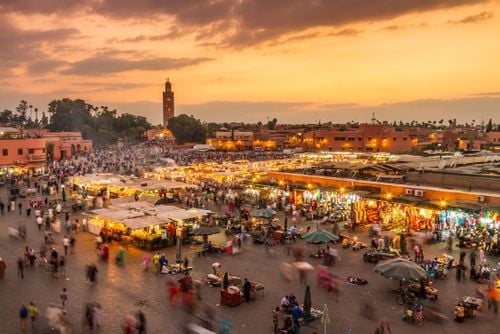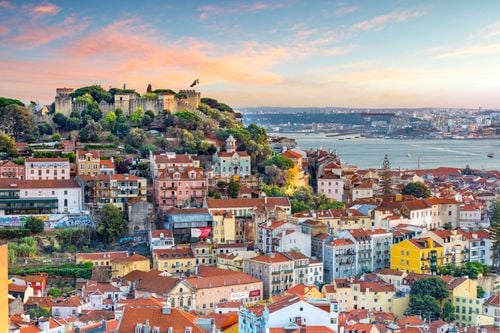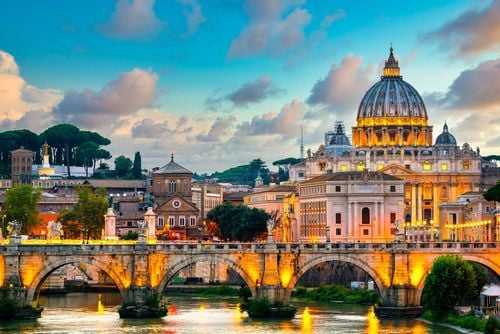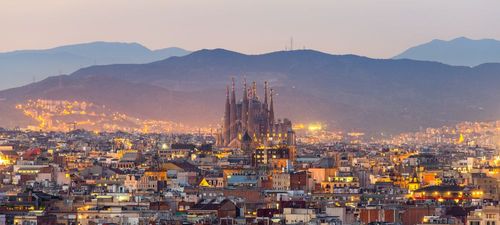Île de Beauté, a skilful blend of nature and culture
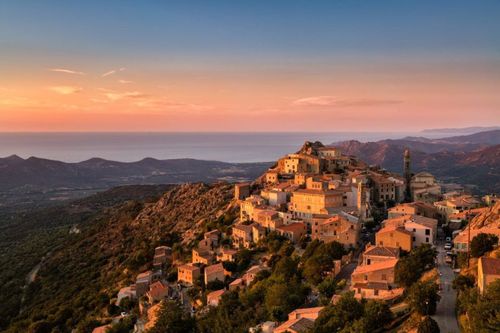
CORSE-Guide.jpg
- © iStockphoto.com / Freeartist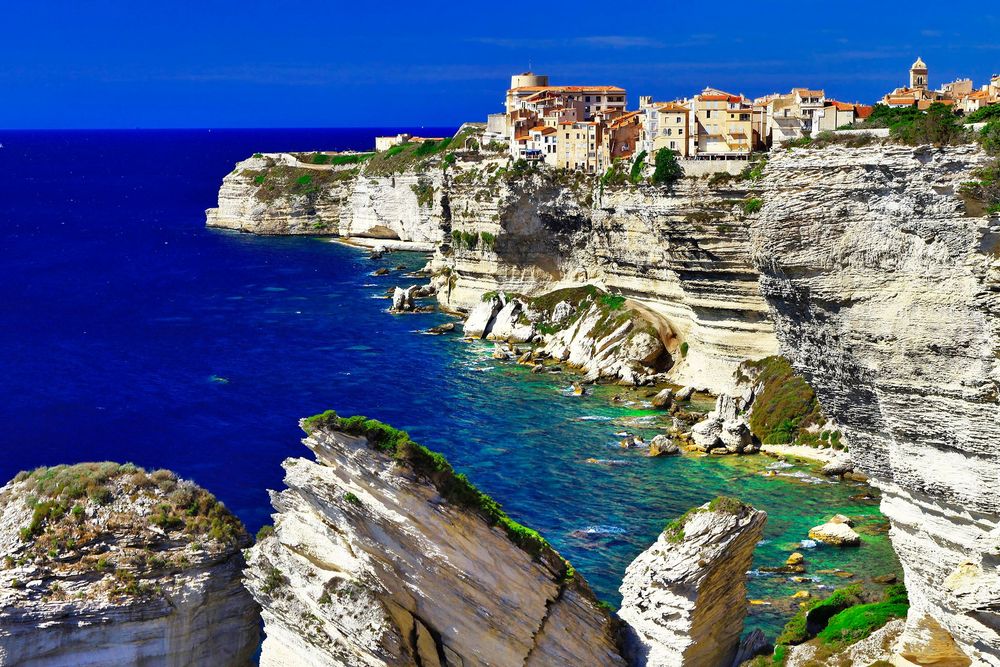
Île de Beauté, a skilful blend of nature and culture
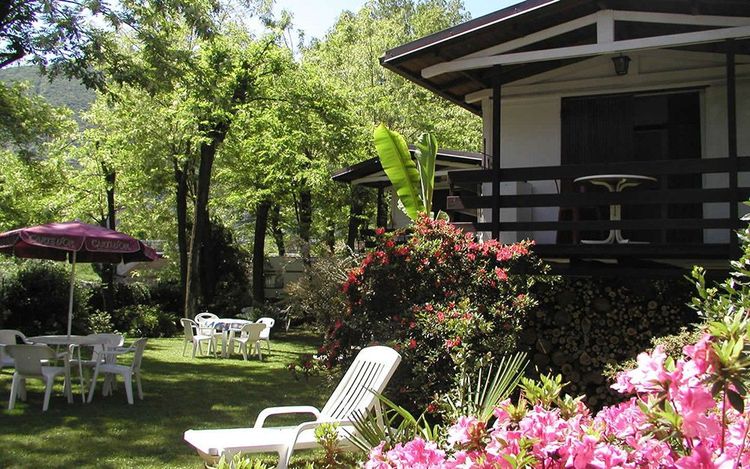
Camping Italie
The Isle of Beauty is so aptly named that the mere mention of it conjures up in everyone's mind the blue Mediterranean, the little coves, the mountains and the little villages with their shady squares.
This green island with its strong identity stands apart in the Mediterranean basin. It is a skilful blend of nature and culture.
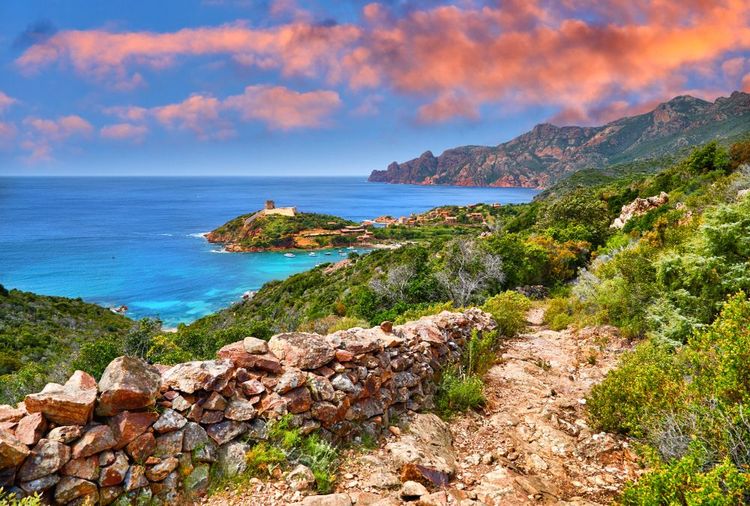
Corsica's landscapes are breathtaking.
- © Zebra-Studio / ShutterstockFor those who have never set foot on Corsican soil, but who can only dream of these images, their arrival should be followed by a discovery of Corsican culture at the Musée de la Corse in Corte. Between tradition and modernity, the true face of this region can be discovered through the museum's collections. For the more inquisitive, there's also the Mnemosina museum in Prunelli Di Fium'Orbu, where you can learn all about the archaeological treasures unearthed on the island, and the Fesch museum, with its collection of 300 Italian paintings.
After the "theoretical" discovery, Corsica can be experienced and enjoyed by visitors who know how to follow their senses. Naturally, the eyes are very much in demand. The landscapes offer a flora that changes with altitude. Between meadows, pine and beech forests, chestnut and olive trees, the scrubland... there's no risk of déjà-vu!
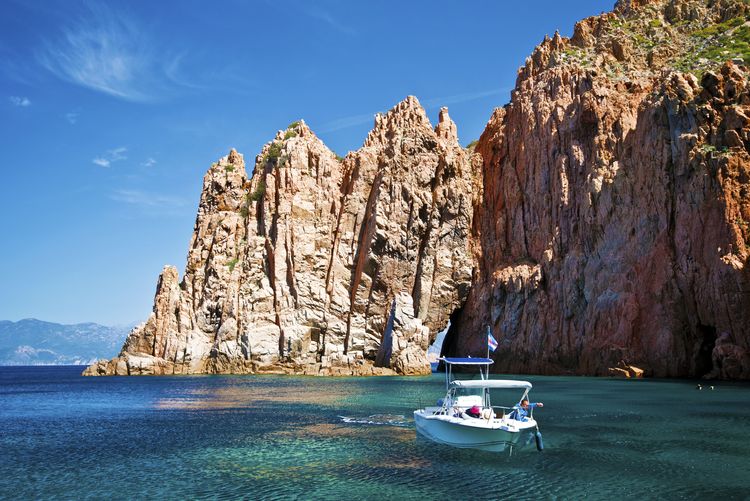
The Bavella reserve, the Asco reserve and the Parc Naturel Régional de Corse (Corsican Regional Nature Park) offer a perfect overview of the island's wealth of natural treasures, both in the air (with birds such as the Osprey) and on land.
The latter, located between Calvi and Porto-Vecchio, covers more than a third of the island's surface area and boasts no fewer than 2,000 plant species.
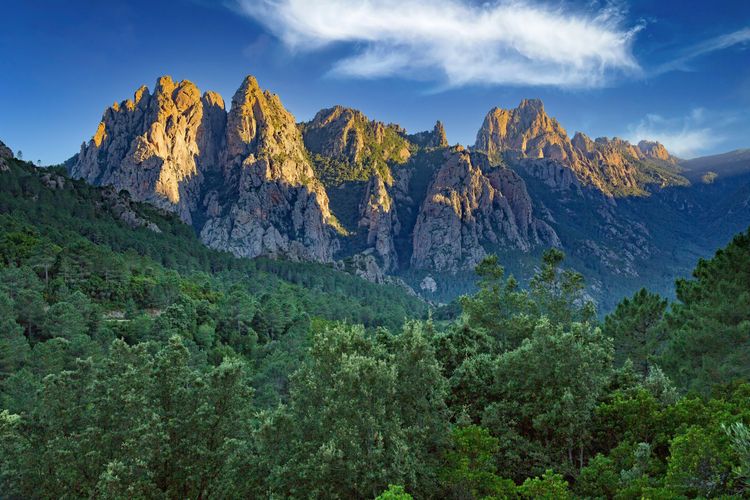
With its international marine park, its Cerbicale islands which are a sanctuary for crested cormorants, its Lavezzi islands where 68 species of fish have been listed, its Scandola island, the first reserve in France to combine land and sea, and its 'calanches' (creeks), one of the most impressive sites in Corsica, what else can you do but remain contemplative?
All the more so as, like the calanches, nature takes care of everything, the elements shaping the landscape as they please, creating here and there admirable natural sculptures or chaotic landscapes with their caves and cavities.
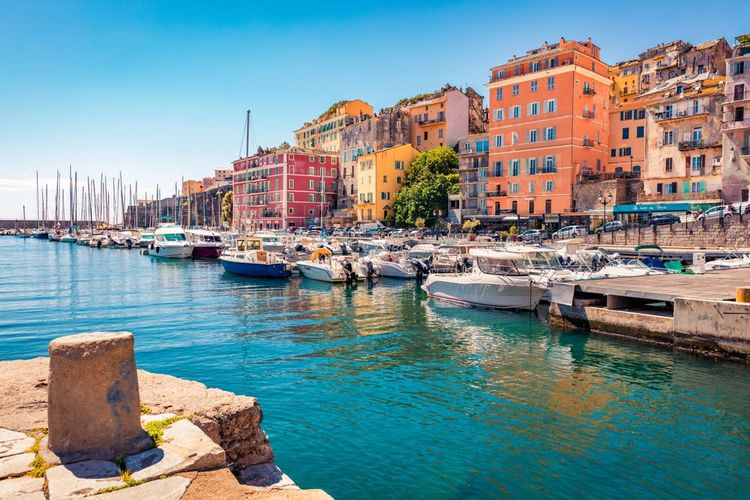
As you travel around the island, the main towns of Ajaccio, Bastia, Calvi and Corte offer a rich heritage steeped in history. Whether it's the Bastia citadel, Ajaccio cathedral (Napoleon's childhood church), the Castellu de Cucuruzzu (an archaeological site) or the San Quilicode Cambia chapel (a small Pisan Romanesque building with a surprising interior decoration), each building represents a piece of Corsica's more or less distant history.
With such a varied landscape, there's plenty of scope for sports, whether in the air with paragliding, in the water, on the greens for golf fans, or on land with the many hiking trails, such as the GR20 or the Sentier des douaniers.
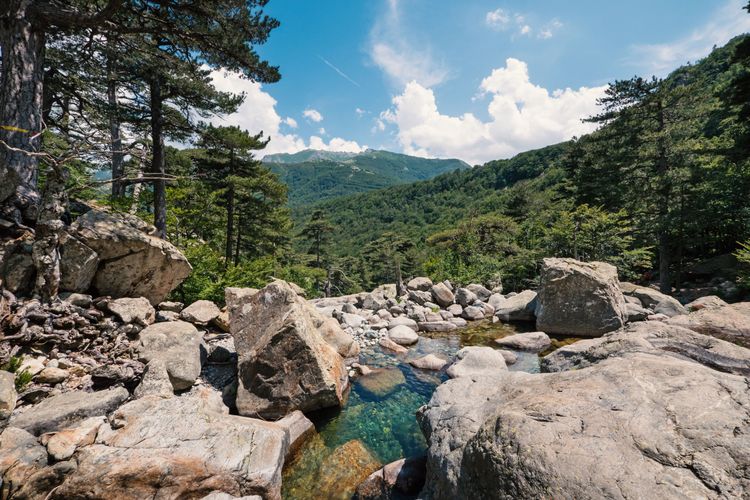
With your stomach in your heels, it's when you sit down to dinner that you realise that walking is good for you, because it gives you an appetite! And there's never enough appetite here to discover the specialities. Epicureans will be delighted by regional dishes with names that are difficult to pronounce, but with delicious flavours such as azimu (fish soup), brocciu (cheese made from sheep's or goat's whey), figatellu (dried sausage), prisuttu (cured ham) or ghjalaticciu (stuffed pork stomach), all washed down with typical wines... Corsica's cuisine is just as varied as its landscapes!

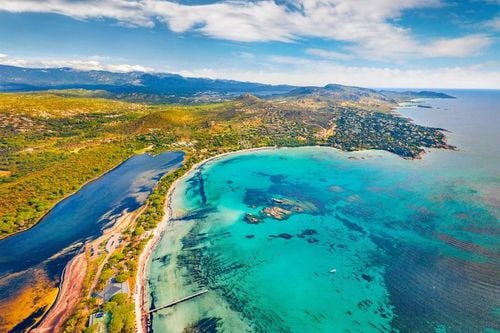
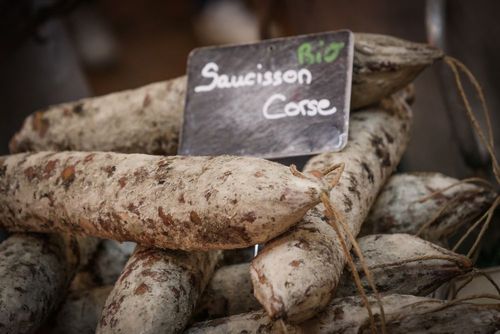
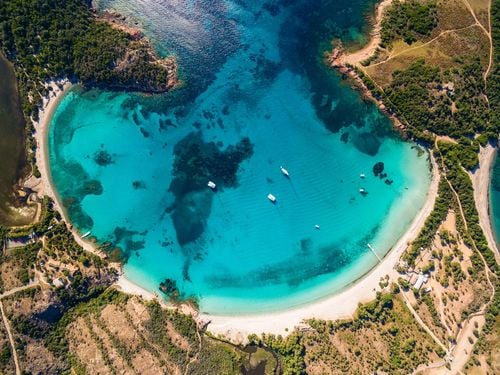
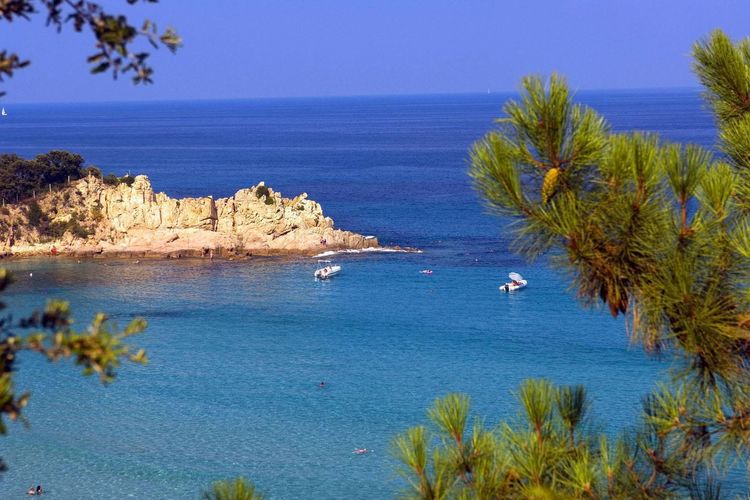 1
1
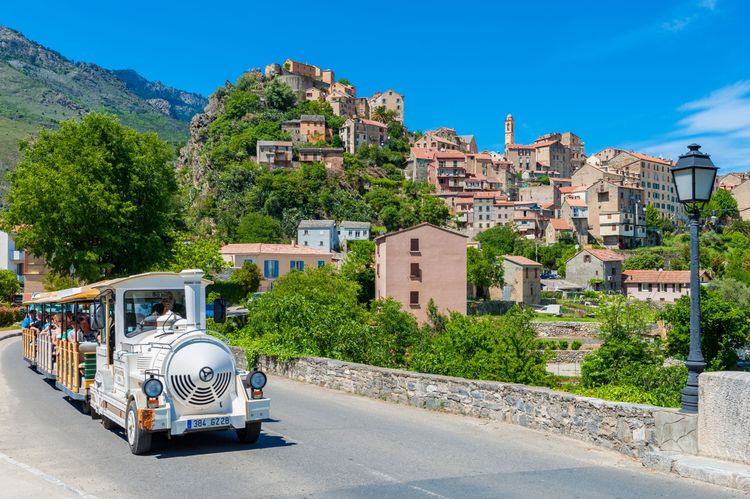 2
2
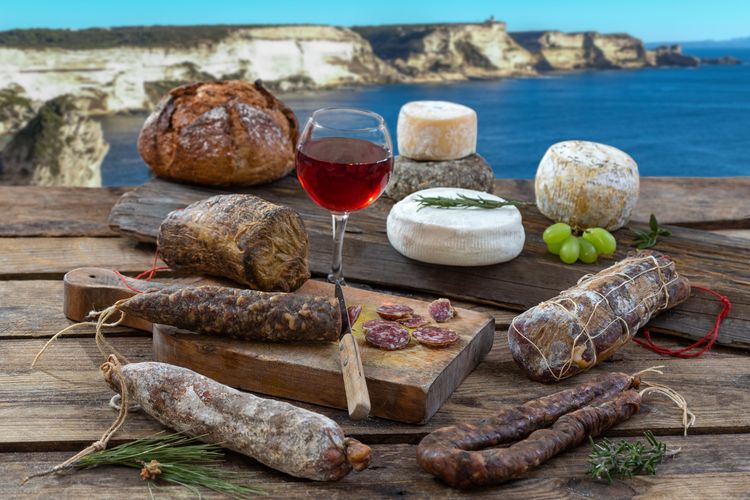 3
3
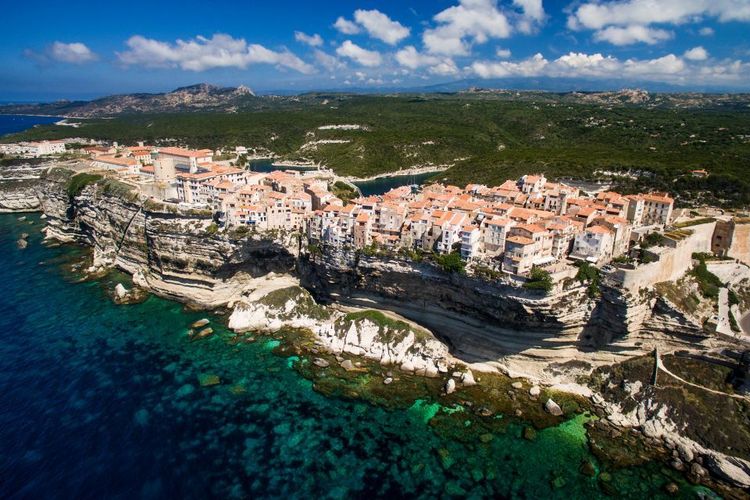 4
4
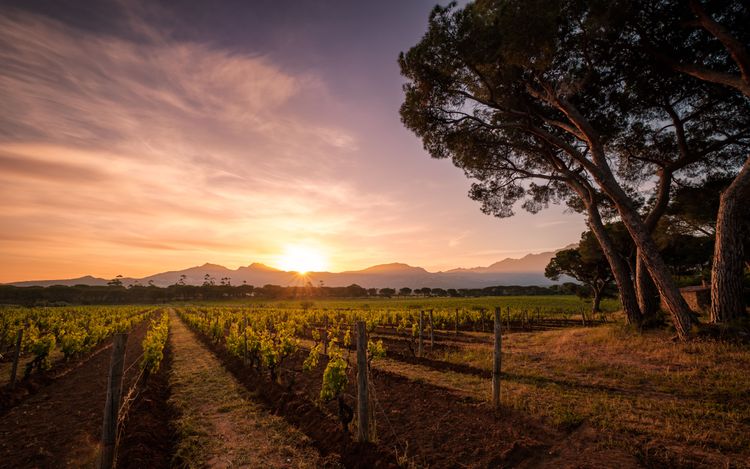 5
5
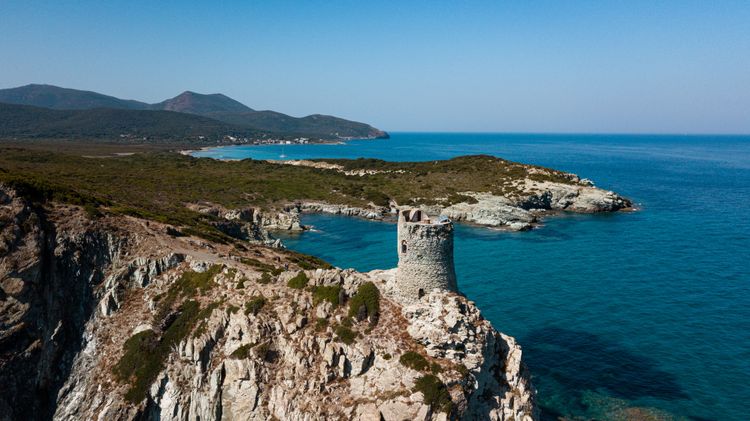 6
6
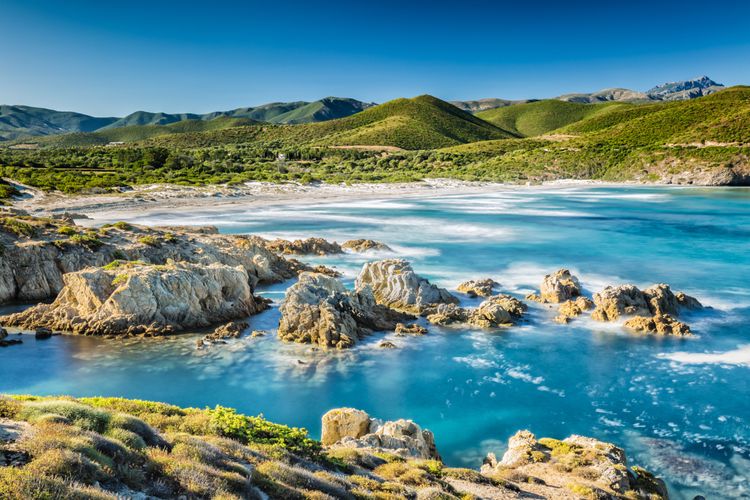 7
7
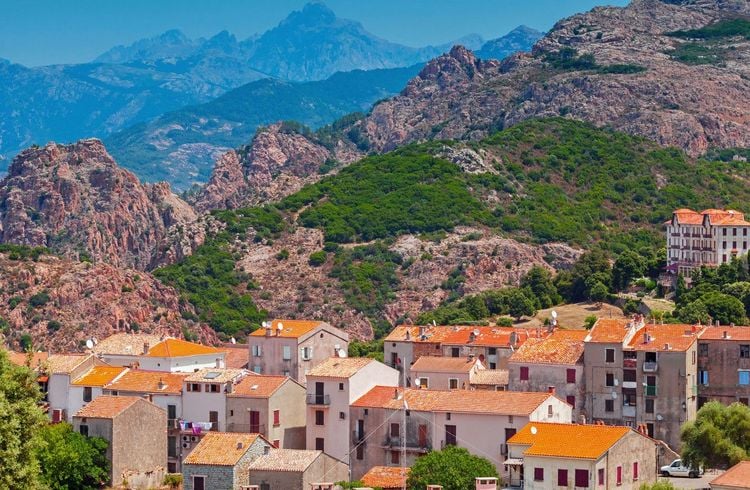 8
8
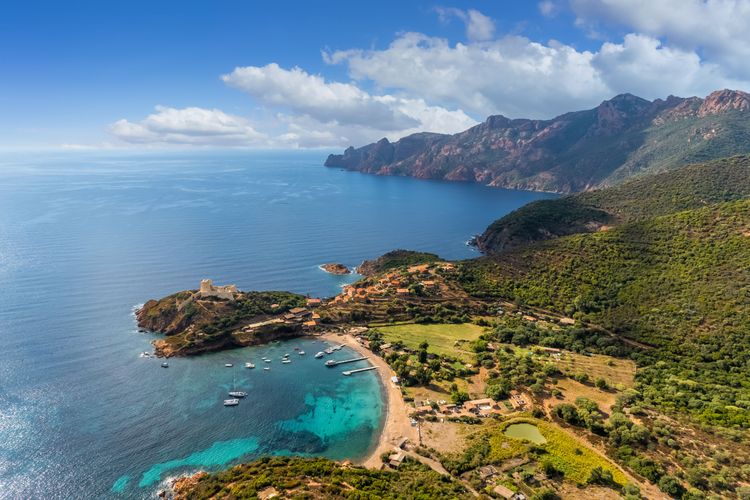 9
9
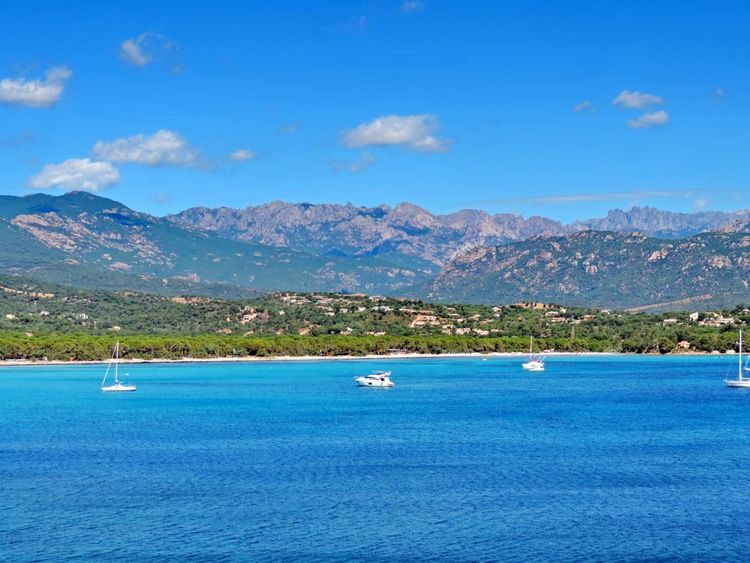 10
10
Corsica has four airports to welcome tourists wishing to enjoy the charms of the Isle of Beauty: Ajaccio and Figari in the south, Bastia and Calvi in the north. Air France and Air Corsica offer flights from Paris, Lyon, Nice, Bordeaux and Marseille. You can also turn to Easyjet, HOP!, Air Méditerranée, Transavia, XL Airlines and Ryanair for cheaper flights, but there are fewer connections.
In the magnificent natural setting that is Corsica, you'll find a host of beautiful addresses: intimate, family-friendly, luxurious, secluded in nature... There's something for every taste, but always with plenty of charm. Discover our favourite hotels in Corsica!
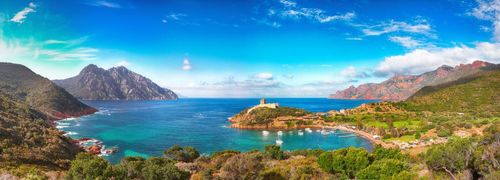
Surface area: 3351.0 km2
Population: 30,2000
Corsica is obviously one of the most attractive destinations in the summer, and like all sun destinations, the island is very popular in summer. It's difficult to find accommodation at the last minute, so it's a good idea to plan ahead and book well in advance (sometimes even before spring).
Despite these precautions, you should be aware that the island is very busy in July and August, which means that the beaches are often overcrowded, as are the restaurants and tourist attractions. Prices can also rise.
To make the most of a holiday exploring Corsica, it's best to leave before or after the school holidays, if possible. With its Mediterranean climate, the island enjoys mild temperatures and sunny days in spring and autumn, but without the flood of tourists (which means that Corsicans are more relaxed).
Corsica's climate, especially in summer, means that you need to be very careful in the sun: sun cream, sunglasses and headgear are all essential items to pack in your suitcase.
This recommendation is all the more important for those wishing to tackle the famous GR20 during their holidays. It's best to be well-prepared and well-equipped before embarking on this hiking route, which, however beautiful it may be, is no picnic. Walking in the blazing sun, the sometimes steep gradients and particularly difficult sections are all part of this adventure. There's nothing insurmountable about it, you just need to be well-informed and well-documented before setting off on these paths of rare beauty.
Cars and motorbikes are still the best way to get around and access all the island's hidden corners and treasures. You can choose to come to Corsica with your own vehicle or hire one locally. There are a large number of rental companies on the island. However, it is more difficult to hire motorbikes or scooters locally.
Aword of caution: be particularly careful when driving in Corsica. The roads are winding, some are impressive with steep inclines, and above all Corsican drivers can be in a hurry and impatient. If you're being tailgated by a driver on a difficult road, don't hesitate to let them overtake you as soon as the opportunity arises.
During the summer months, be patient, as traffic can be difficult. Finally, if you venture into the mountain villages, you may not find any petrol stations, so be prepared!
The best thing to do is to bring back a culinary souvenir of your visit to Corsica! The local gastronomy is rich, varied and delicious: honey, jam, charcuterie, cheeses, wine, chestnut flour and other products for which the island is renowned for its culinary specialities. These products will be a perfect souvenir of your stay in sunny Corsica!
Before you arrive in Corsica, why not learn a thing or two? A few words spoken in Corsican are always appreciated by the locals!
Oui: ïé Non: Innò Bienvenue: Benvenuti Ça va: Va bè Comment ça va? : Cumu và ? Bonjour : Bonghjornu Bonsoir : Bóna sera Good night: Bóna notte To your health: Salute! Goodbye: Avvèdeci Merci: Grazie Excusez-moi: Scusatemi
As for pronunciation, the ends of words are often swallowed: "U" is always pronounced "OU", "T" becomes "D", "TT" becomes "T", "V" is generally pronounced "B" (except in southern Corsica), and "LL" is pronounced "DD" in the south.
The consonants K, W and X do not exist in Corsica. As for vowels, "A" and "I" are pronounced as in French, "U" is pronounced "OU", "E" is never silent and "Y" does not exist.
To get to the Isle of Beauty, any means is good. However, one of the cheapest solutions is to take the ferry from Marseille with your car, to avoid having to hire one on the spot.
explore Try out our comparators
It is Easy to travel
